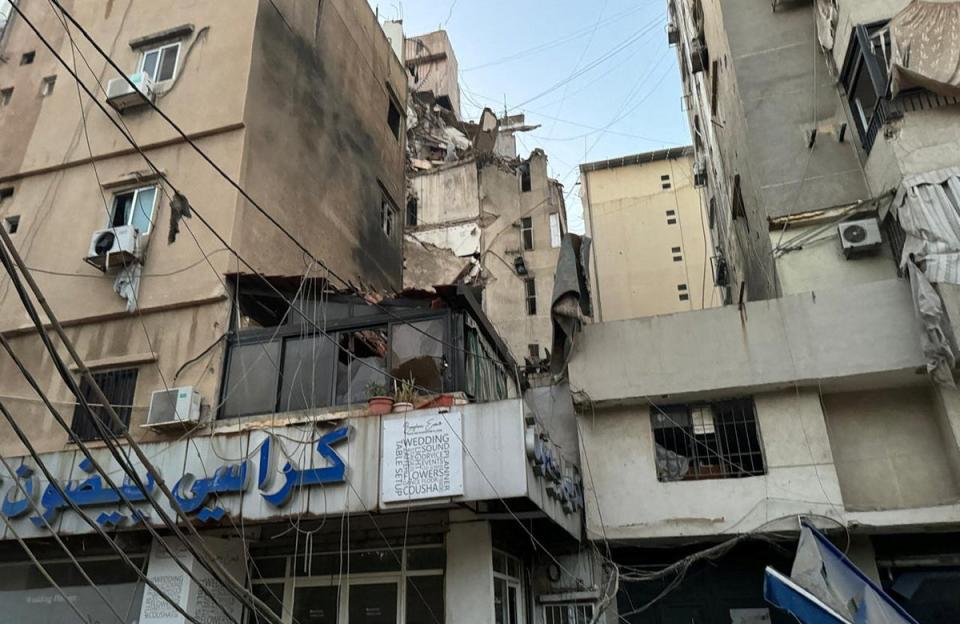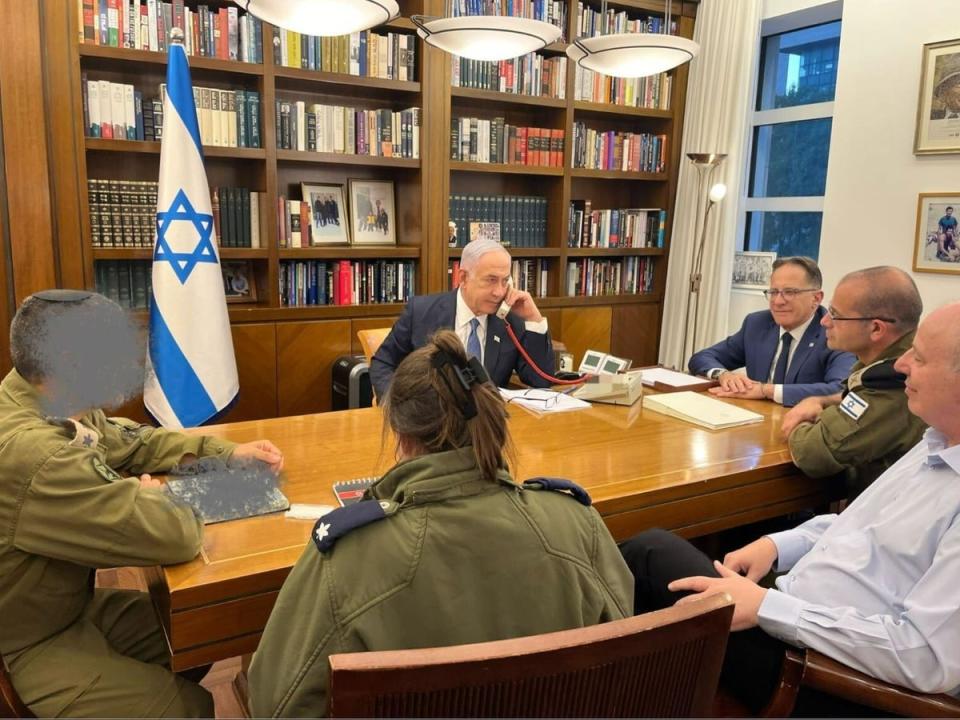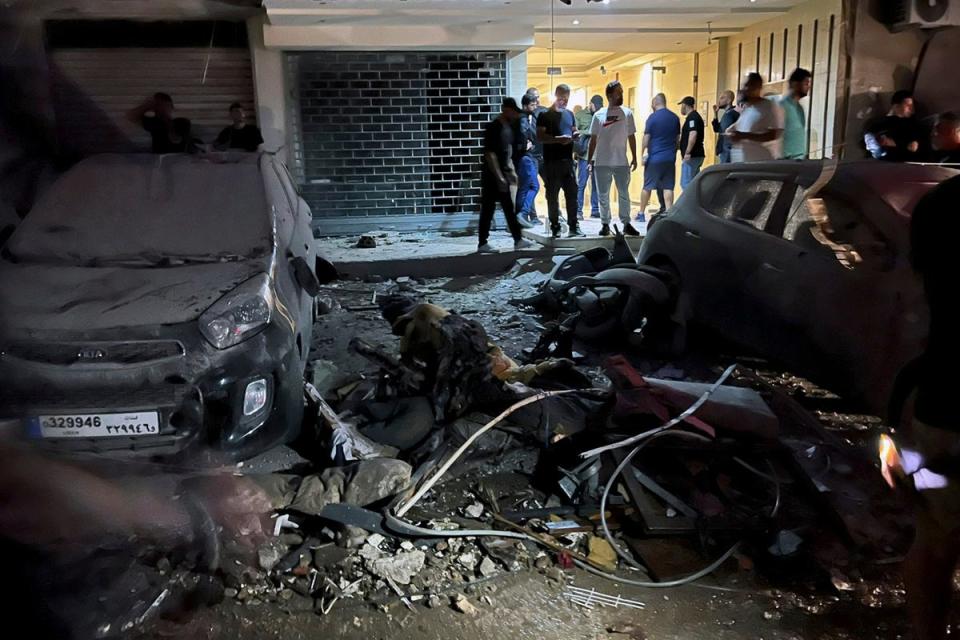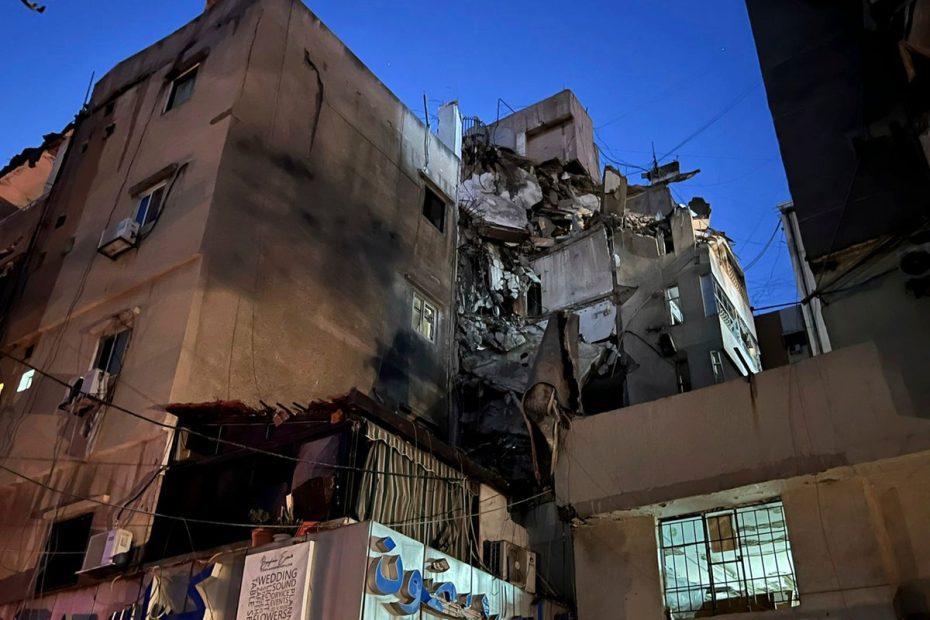Israel has carried out an attack in southern Beirut, targeting a senior Hezbollah commander it says was “responsible for the murder of children”.
Images from the Lebanese capital show shells from several destroyed cars, as well as skyscrapers devastated by the explosion. Thick plumes of black smoke obscure the camera view as residents can be heard screaming.
It is the first time the Israeli military has targeted Beirut since Hamas attacked Israel on October 7, killing 1,200 people and taking 251 hostages. Hezbollah has fired continuously into Israel since that day, raising concerns that Israel could eventually — or even prematurely — engage in a two-front war.
The Israeli military claimed the strike was a long-awaited response to a rocket attack on the occupied Golan Heights on Saturday that killed a dozen children and young people.
The alleged target of the strike was Fuad Shukr, also known as al-Hajj Mohsin, who is a senior adviser on military affairs to Hezbollah leader Hassan Nasrallah. It is unclear whether the strike was successful, although Hezbollah quickly denied that Shukr had been killed. The Israeli military refused to confirm that Shukr was the target when contacted by The independent.
The Iranian-backed militia Hezbollah claimed it was not responsible for the attack on the Druze community in the Golan Heights.
But Israeli Prime Minister Benjamin Netanyahu said they had no illusions about Hezbollah's role in the attack. During a visit to the scene of the attack in the remote town of Majdal Shams, a predominantly Druze village in a region annexed by Israel from Syria in 1981, he vowed a “tough” response.
US officials also said they were confident Hezbollah was responsible, though the Joe Biden administration had urged Israel not to escalate tensions too drastically in its response to the attack.
Diplomats had urged Israel not to target Lebanon’s capital, Beirut, its southern suburbs that form Hezbollah’s heartland, or key infrastructure. They hoped that by limiting the Israeli response, forceful retaliation by Hezbollah could be avoided.




But an Israeli army statement confirmed that they ignored that advice and targeted southern Beirut.
A statement posted on X, formerly Twitter, said: “The [Israeli military] a targeted attack carried out in Beirut against the commander responsible for the murder of the children in Majdal Shams and the murder of countless other Israeli civilians.”
A minute after the statement was published, Israeli Defense Minister Yoav Gallant, a close associate of Netanyahu, wrote on X: “Hezbollah has crossed the red line.”
The military added that there were “no changes” in their “defense guidelines,” a reference to their recent developments on Israel’s northern border, which see them prepare to go on the offensive if necessary.
In April, the military said it had completed a new step in preparing for a possible war along the northern front. In a statement titled “Readiness for the Transition from Defense to Offense,” it said the completed phase focused on logistics “for a broad mobilization of [Israeli] troops”.
Earlier on Tuesday, Hezbollah rejected calls from international envoys not to respond to an expected Israeli strike in retaliation for a deadly rocket attack on the Israeli-occupied Golan Heights.


Hezbollah has told the mediators it will still respond to any Israeli attack, the official said in written comments sent to reporters.
The official would not say which countries the mediators represented.
“International envoys are indirectly informing us of the idea that we should not respond to the expected aggression, under the pretext that we need to prevent escalation and a slide into an all-out war,” the Hezbollah official said.
Hezbollah has “informed them of our explicit rejection of this request” and will respond, the official said.
The group took the Israeli threats seriously and was prepared, but did not expect a ground invasion, the official said.
Hezbollah also said mediators had informed them of diplomatic efforts to urge Israel to spare civilians and civilian facilities in any operation. “This is a good thing, but we do not trust our enemy,” the official added.

